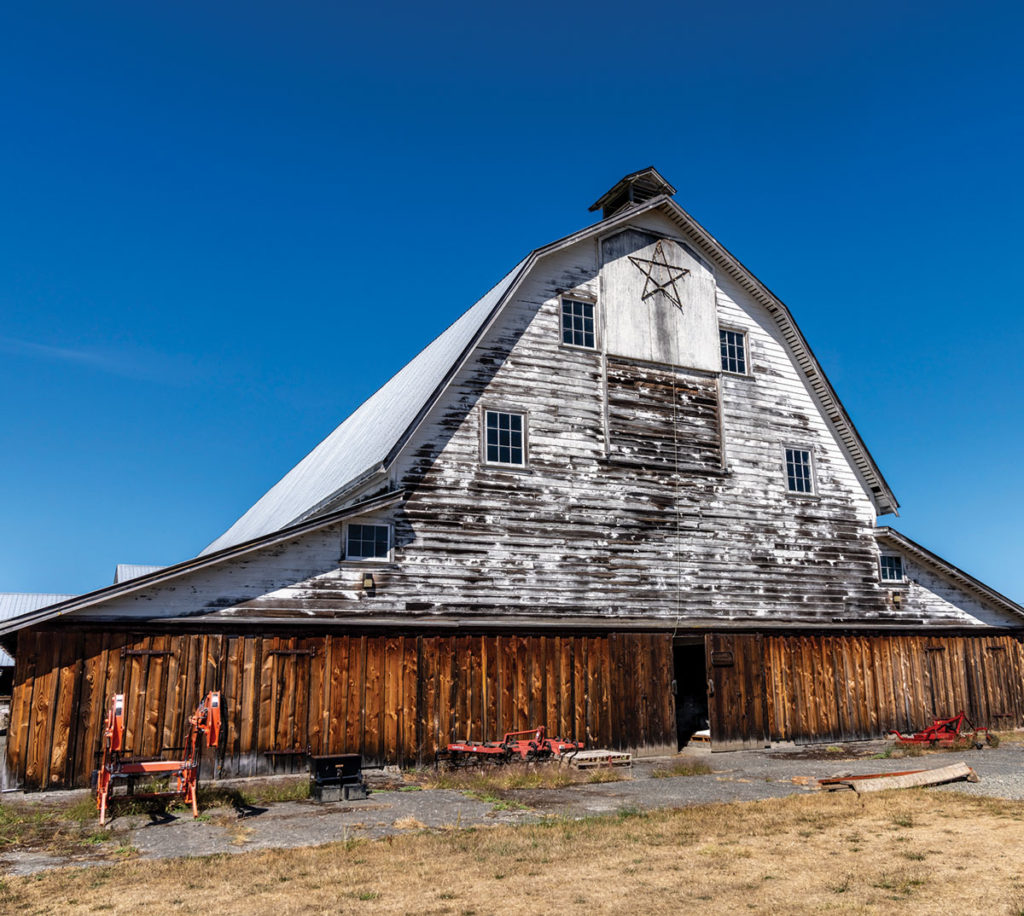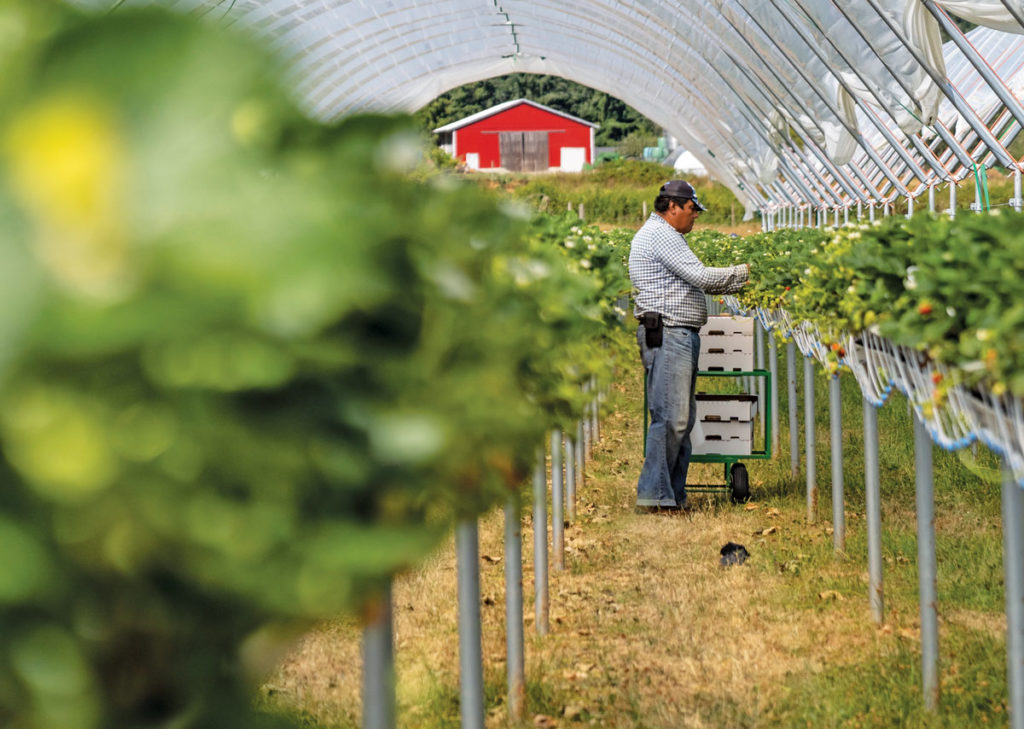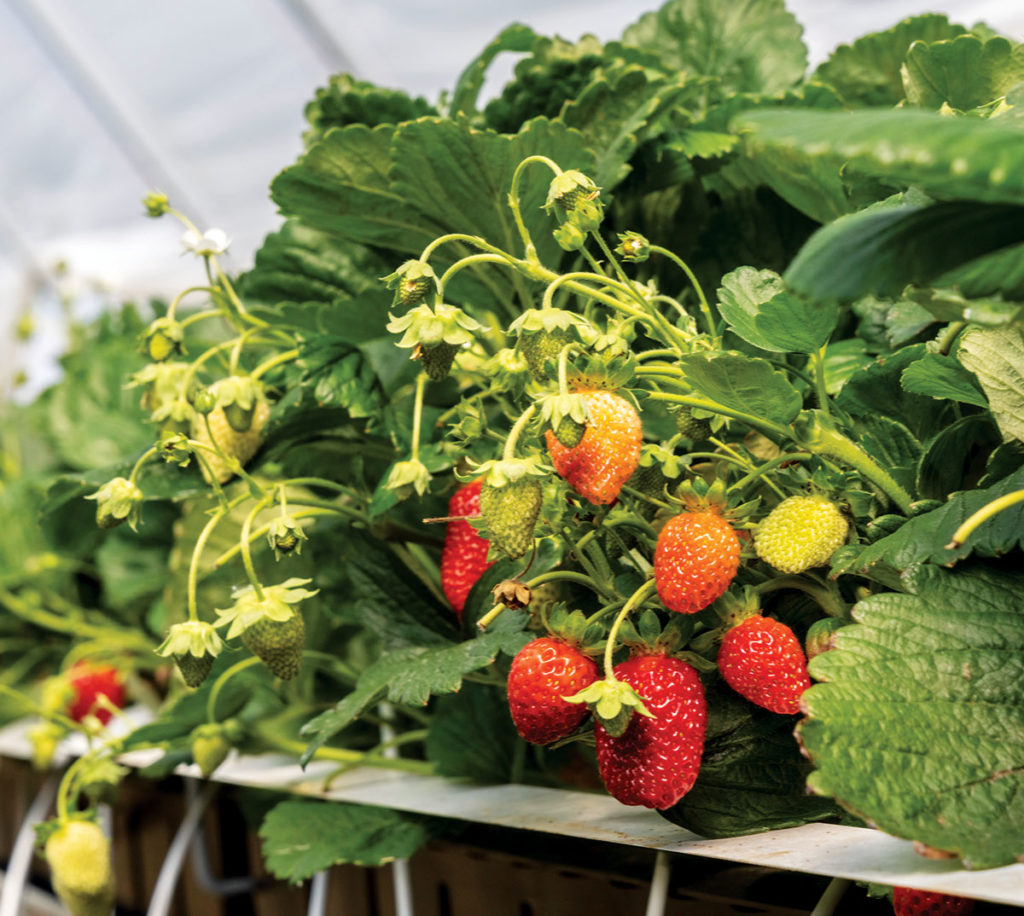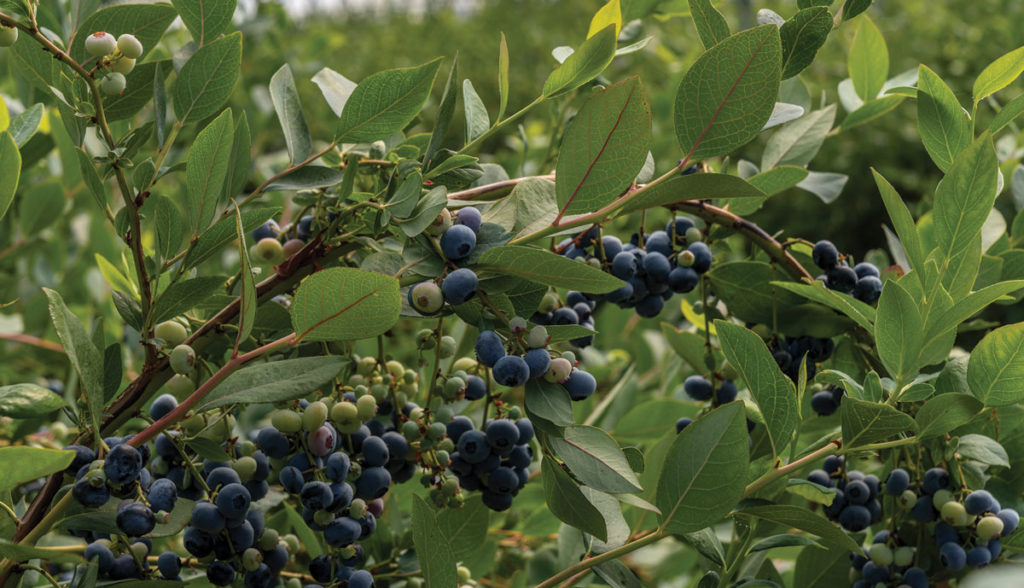Hilliers Estate Farms
BY LISSA ALEXANDER, PHOTOS BY BRIAN ARGYLE
Chris and Allena Bergen met at a barn party, and three years later, surrounded by fields of young blueberry bushes, they celebrated their marriage in that very place.
The location held deep significance for both of them, Allena because of her roots on the farm, and Chris because of the dream he was building there.
The barn was located on Chris’ newly purchased family farm in Qualicum Beach. The Bergen family wanted to expand the berry farm they had established in Abbotsford, B.C., and the 350-acre farm they had purchased in Qualicum Beach was perfect.
“When we took a tour of this farm, we noticed that the daffodils were really late compared to Abbotsford,” says Chris from an upstairs office in their sorting facility. “So that was one of the reasons we bought it, for a later season blueberry crop.”
Chris moved to the property in 2007 to establish Hilliers Estate Farms at the age of 21. Shortly after, his family decided to have a barn party to meet the neighbours. Allena’s grandparents had owned the farm for a few decades beginning in the ‘60s, then called Turner Meadows. Allena lived on the farm for a short time while her parents were building their house down the street. Her grandparents retired and sold the farm in the ‘90s, and her parents still live on a piece of property that was originally part of the farm.
“I have lived on this street for a long time,” Allena smiles.
After the soiree in the barn — which was the original barn constructed by the McRae family in the 1930s — Allena started working on the property and two got to know each other. “We got married 2011 and I’ve been here ever since,” she enthuses.
Last year the farm produced 1.3 million pounds of blueberries and about 50,000 pounds of strawberries. But the Bergen’s berry farming originally began small, with Chris’ father Jake and a small crop of raspberries in Abbotsford.
Mexican connection
Chris’ father Jake also had an early introduction to the berry business. In 1979, at 21 years old, he took over a one-acre raspberry crop from his brother. “It was supposed to be a summer job for a few years while he was going to school,” Chris explains. “But it ended up being a career.”
When he was about 11 years old, Chris started working on the farm, sweeping floors, doing odd jobs, and working his way up in the business.
Now owner of Hilliers Estate Farm, Chris manages the operations, including nine employees from the area, and 55 seasonal workers from Mexico. Chris reveals how difficult it is to find labourers in the area who are willing to work on a farm. Many of his employees from Mexico return year-after-year.
“Some guys are the original workers that helped me plant the fields in 2007,” he explains.
The berry season begins in February with pruning and field maintenance. The plants are pruned quite aggressively each year to maintain the size of the fruit, says Chris, pointing out that if they overcrop the plants, the blueberries wouldn’t reach their plump size. Harvesting time involves picking each field two or three times to ensure nothing gets overripe. Within three hours of picking, the berries are cooled down to 1 degree Celsius to help improve their shelf life.
Although the Bergens continue to renovate and make good use of the original farm outbuildings, they don’t shy away from new technologies.
New technologies
“We have nine wind machines in the field, and they do the frost control for us,” says Chris. That means on clear, cold nights, they push the cold air out so the warm air can settle in below it. “This year we ran them the most we’ve ever run them,” says Allena. “This year was pretty dry.”
The couple automated the irrigation system this year so they can run it from their smart phones. They also have tension sensors in a few locations on the farm so they can see the rate that the plant is pulling the water from the soil to ensure they are not overwatering and are using their water efficiently.
In order to adapt to labour shortages and COVID-19 restrictions, they recently purchased a Kato 260 Artificial Intelligence sorter. It works by taking multiple images of each individual berry and then sorts them into different grades. “The machine can look at 256 berries per second,” says Allena, adding that it has allowed them to keep workers better distanced in the packing house and it allows them to sort more efficiently.
Thirty acres of the farm is grown underneath plastic to protect it from extreme sun and rain, and this year they began growing strawberries in raised containers. This technique is producing better berries and it’s getting a nod from employees who can now pick them standing up.
Although the farm is not certified organic, the Bergens follow an integrated pest management method, using a combination of tools that considers both plant health and pest management while minimizing harmful impacts on the environment.
“If we do have to use a crop protection product, it’s registered with Health Canada,” says Chris. The farm is audited for food safety once a year and they recently received 100 per cent from CanadaGap, a program developed in Canada to promote Good Agricultural Practices for fruit and vegetable suppliers.
Toilet paper for 50
Like most businesses, COVID-19 has taken its toll on the farm. They struggled to find staff, and once they secured them, they had to adjust all their practices to ensure there was distancing. Getting supplies was also an issue.
“It was a struggle to get packaging, labels, shipping materials…” says Chris. “Last year we struggled to have enough gloves for sorting, and extra cleaning supplies.”
“And getting enough toilet paper for a crew of 50 was difficult,” said Allena. “It was hard enough to get it for your household.”
But all the new measures worked and everyone at the farm has remained healthy, including the two, small “official taste testers,” Chris and Allena’s children Julianna, 6 and Erik, 3. Chris explains that the kids love eating the blueberries, and if they get a new variety in, they let the kids try it out.
“They will give us an honest reaction…they won’t be polite,” Chris chuckles. “The other day we gave our son a new variety and he spit it out.”
People can purchase Hilliers Estate Farm berries (mostly blueberries and some strawberries) at Quality Foods. Bergen Farms products (raspberries, strawberries, blackberries, and blueberries) can be purchased at Thrifty Foods. And if you happen to be at Costco in Japan, you will find Hilliers Estate Farm berries there, but most of the berries stay in B.C. For more information on Hilliers Estate Farms, visit the website www.hilliersestate.ca.



